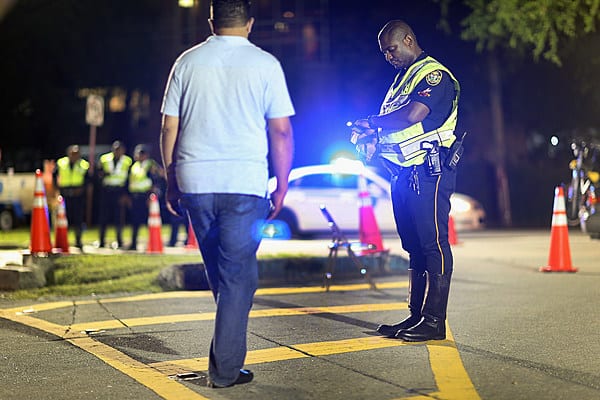
Human error is in some way responsible for over 90 percent of the car crashes in Minnesota. Legally, any type of human error could denote a lack of care or a safety law violation. However, jurors are much more likely to award compensation if the wreck involved one of the five types of impairment, as outlined below.
If the victim sustained a serious injury, MN personal injury lawyers may obtain compensation for both economic damages, such as medical bills, and noneconomic damages, including pain and suffering. Minnesota law defines a “serious injury” as any wound that triggers medical bills exceeding $4,000.
Alcohol
Beginning in the early 1990s, courts and law enforcement began an extended crackdown against drunk drivers. Yet despite all these efforts, alcohol still account for more than a quarter of the fatal car crashes in the United States.
Alcohol is a depressant which impairs motor skills and reaction times. Alcohol is also a powerful mood-altering substance which impairs judgment.
In alcohol-related collisions, MN personal injury lawyers may pursue claims against the tortfeasors (negligent drivers) who caused the crash. They may also seek compensation from the grocery store, bar, restaurant or other commercial alcohol provider if the sale:
- Substantially caused the tortfeasor’s impairment, and
- Was illegal (i.e. the tortfeasor was under 21 or was obviously intoxicated at the time).
Direct evidence is sufficient to establish an illegal sale to a minor. The person was either over or under 21. The old “s/he looked older” defense usually does not work. If the tortfeasor was an adult, the victim/plaintiff may use circumstantial evidence to prove obvious intoxication. This evidence may include bloodshot eyes, unsteady balance, or odor of alcohol.
This same evidence is usually sufficient to prove impairment, since alcohol impairment begins with the first drink.
Sleepiness
Many people would never think of drinking and driving as they are aware of the dangers. Yet many of these same people routinely drive when they are dangerously fatigued. Most people admit as such; some even admit to having fallen asleep at the wheel.
Drowsy driving is no small matter. Alcohol and fatigue affect the brain in about the same way. Driving after eighteen hours without sleep is like driving with a .08 BAC.
Lack of sleep only tells part of the story. Most people are naturally sleepy early in the morning and late at night. It does not matter how much rest they did or did not get the night before. Time-of-day sleepiness is particularly acute if the tortfeasor recently changes work schedules.
So, MN personal injury lawyers may use either the time of the accident or the amount of sleep the tortfeasor had to establish liability in these cases.
Drugs
Alcohol is by no means the only substance that impairs drivers. Many drugs have roughly the same effect. Some are entirely legal, some are legal under certain circumstances, and some are entirely illegal.
In some jurisdictions, drugged driving incidents outnumber drunk driving incidents. Many of these crashes involve opioid prescription drugs, like:
- Oxycontin,
- Fentanyl,
- Vicodin, and
- Codeine.
Even if the tortfeasor had a valid prescription and was not abusing the drug, it is still negligence to drive while under its influence. Many opioid pain relievers, especially Fentanyl, are hundreds of times stronger than morphine.
MN personal injury lawyers also deal with crashes which involve street drugs, like LSD and heroin. Most of these substances are even stronger than opioids.
Many over-the-counter drugs also impair drivers. These drugs include items like Benadryl, Unisom, and Sudafed. Certain food additives, such as caffeine, may also be impairing.
Medical Episode
Diabetes, epilepsy, heart disease, and a number of other conditions can all cause sudden loss of consciousness. These kinds of crashes are among the most dangerous ones. There is simply no telling where the car will go and what it will hit.
People who continue to drive with serious medical conditions clearly display a lack of care. Moreover, they show disregard for the safety and property of others, because they are well aware of the risk. That attitude is the essence of punitive damages. These damages are available if there is clear and convincing evidence that the tortfeasor intentionally disregarded a known danger.
Many people who drive with medical conditions also violate the law. Minnesota usually suspends drivers’ licenses in these cases. Driving with a suspended license constitutes negligence per se, or negligence as a matter of law. In these cases, it does not matter how careful, or how careless, the tortfeasor was.
Distraction
Sometimes, the impairment is external rather than internal. That’s the case with distracted driving, which is the latest addition to the National Highway Traffic Safety Administration’s list of impairments. There are three kinds of distraction:
- Visual (eyes off the road),
- Cognitive (mind off driving), and
- Manual (hand off the wheel).
Hand-held cell phones involve all three types of distraction. Hands-free cell phones, though manufacturers tout them as safe, still involve two types of distraction. Other sources include eating while driving and looking out the window instead of at the road.
In Minnesota, it is generally illegal to use a hand-held cell phone while driving. So, the aforementioned negligence per se rule may apply in these cases. With regard to other types of distraction MN personal injury lawyers must establish a lack of care by a preponderance of the evidence (more likely than not).
Call Today To Speak With A MN Personal Injury Lawyer From Carlson & Jones
Impaired drivers often cause the most serious injuries in car wreck cases. For a free consultation with an experienced MN personal injury lawyer, contact Carlson & Jones, P.A. Attorneys can arrange for medical care at no upfront cost, even if the victim has no money or insurance.

